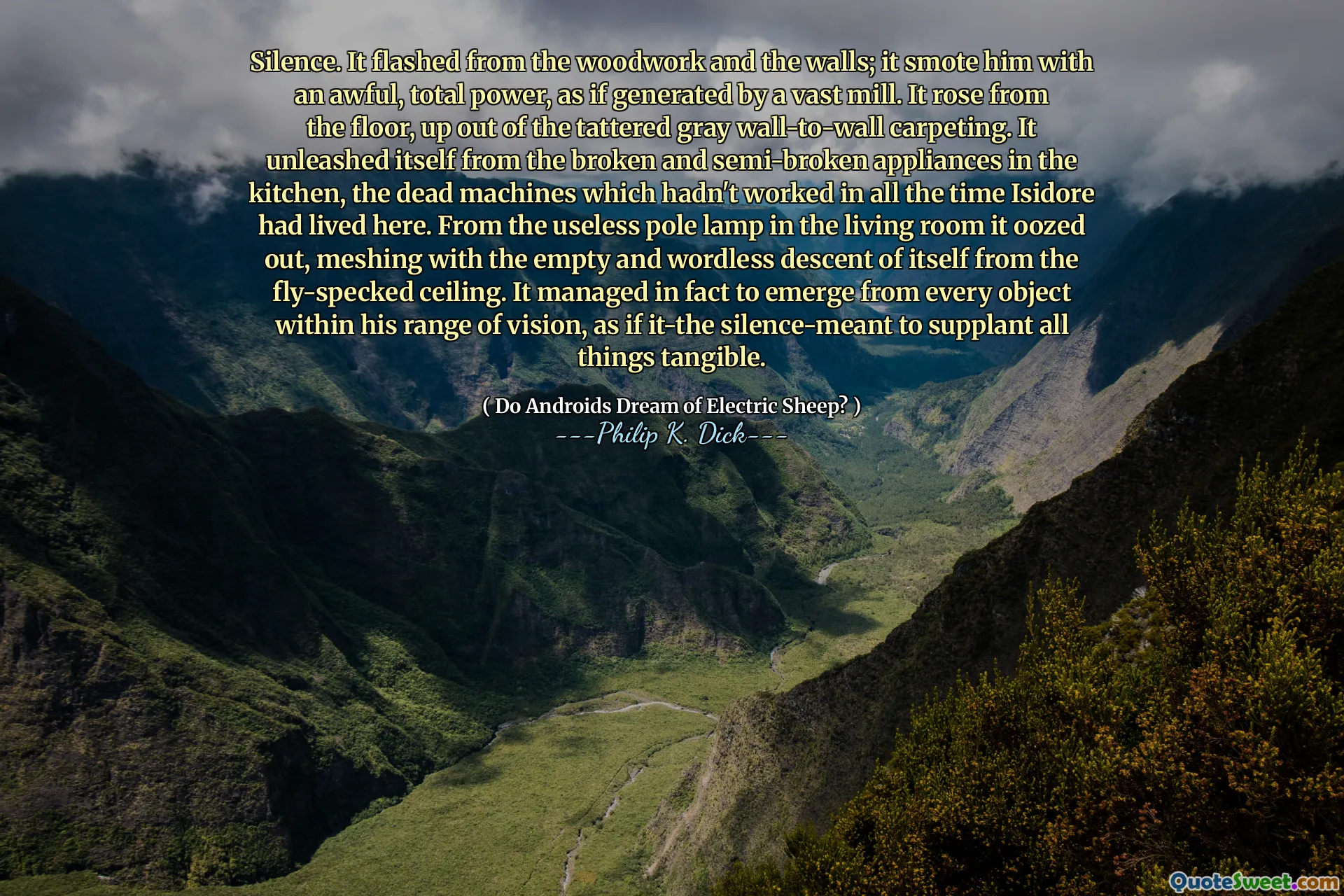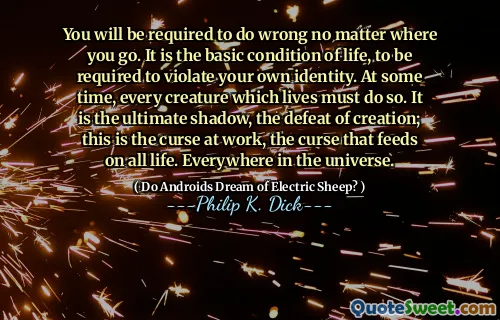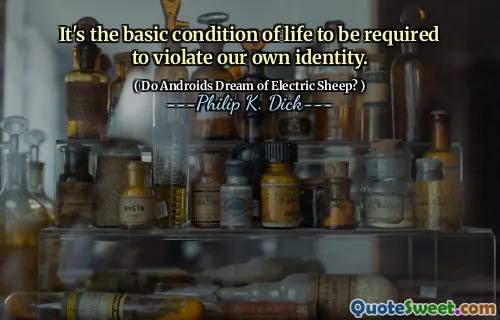
沉默。它从木制品和墙壁上闪烁。它用可怕的,完全的力量击中了他,好像是由庞大的磨坊产生的。它从地板上升起,从破烂的灰色墙到墙地毯上升起。它从厨房中破碎的半折叠设备中释放出来,伊西多尔一直住在这里没有工作的死机。从起居室中无用的杆灯中渗出,与空无一人的天花板上的空白和无言的下降。实际上,它是从他的视野范围内的每个对象出来的,好像是 - 沉默的国家取代所有事物。
(Silence. It flashed from the woodwork and the walls; it smote him with an awful, total power, as if generated by a vast mill. It rose from the floor, up out of the tattered gray wall-to-wall carpeting. It unleashed itself from the broken and semi-broken appliances in the kitchen, the dead machines which hadn't worked in all the time Isidore had lived here. From the useless pole lamp in the living room it oozed out, meshing with the empty and wordless descent of itself from the fly-specked ceiling. It managed in fact to emerge from every object within his range of vision, as if it-the silence-meant to supplant all things tangible.)
这段话描述了一种深刻的沉默感,它包裹着伊西多尔的环境。这种沉默被描述为一种强大的,几乎有形的力量,它从他周围的每个物体中散发出来。它表明,普遍存在的空虚超越了身体的存在,从破旧的电器,破旧的地毯和腐烂的墙壁上产生共鸣。他周围环境中的每个元素都会导致这种压倒性的沉默,扩大其对他的意识的影响。
这种沉默似乎象征着伊西多尔生活和环境的荒凉和衰变。它以一种使感官麻木的预兆代替了现实的活力。对破碎机器和缺乏功能性的引用突出了一个被剥夺温暖和连接的世界,即使是技术的残余物也无法带来生命或声音。总体而言,它捕获了奇多尔在反乌托邦环境中的经历的困扰疏远。











